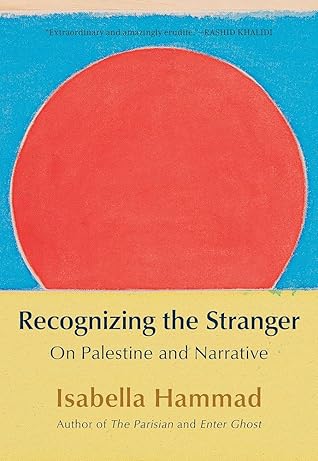More on this book
Community
Kindle Notes & Highlights
Read between
January 6 - January 6, 2025
The flow of history always exceeds the narrative frames we impose on it.
Novels reflect the perpetuation of a human impulse to use and experience narrative form as a way of making sense of the world.
Increased normalization with Israel by Arab states is a symptom of the ways Palestine has been abandoned in the region.
Individual moments of recognition are repeatedly overwhelmed by the energy of a political establishment that tells the onlooker: this is not what it looks like. It is too complicated to understand. Look away.
How many Palestinians, asked Omar Barghouti, need to die for one soldier to have their epiphany?
Once Palestinian voices began to reach wider audiences in the West, the story was quickly cast as a war of two opposing narratives, rather than a holistic and variegated history of European racism and empire and the ensuing and ongoing history of American empire, and the concomitant struggles for self-determination by colonized peoples, from Haiti to Algeria to Vietnam.
The Palestinian struggle has gone on so long now that it is easy to feel disillusioned with the scene of recognition as a site of radical change, or indeed as a turning point at all.
What I learned through writing this book is that literary anagnorisis feels most truthful when it is not redemptive: when it instead stages a troubling encounter with limitation or wrongness.
What in fiction is enjoyable and beautiful is often terrifying in real life. In real life, shifts in collective understanding are necessary for major changes to occur, but on the human, individual scale, they are humbling and existentially disturbing.
The fact is, huge edifices do move in human history. Empires have fallen. The Berlin Wall fell, political apartheid in South Africa did end, and although in neither of these cases were these putative conclusions by any means the end of the story, they are testaments to the fact that, under the force of coordinated international and local action, Israeli apartheid will also end. The question is, when and how? Where in the narrative do we now stand?
It’s one thing to see shifts on an individual level, but quite another to see them on an institutional or governmental one.
Narrative shape can comfort and guide our efforts, but we must eventually be ready to shape-shift, to be decentered, when the light of an other appears on the horizon in the project of human freedom, which remains undone.
We who are not there, witnessing from afar, in what ways are we mutilating ourselves when we dissociate to cope? To remain human at this juncture is to remain in agony. Let us remain there: it is the more honest place from which to speak.
a system in which one population is afforded rights that the other population is denied will be safe for neither.
The argument that Israel is exercising self-defense—already egregious when using military power against a population it occupies—in response to the Qassam Brigades operation of October 7 is untenable in the face of the wholesale slaughter, destruction of civilian infrastructure, and open discussion of mass transfer. Ten thousand dead children is not self-defense.
Most crucially and shamefully, the US vetoed the Security Council resolution demanding an immediate humanitarian ceasefire on December 8, 2023. The image of US representative Robert Wood alone raising his hand in dissent should leave a stain on Western consciousness.
If the United States and the United Kingdom both voted against the Palestinian right to self-determination should we interpret this to mean that the most powerful nations in the Anglosphere if not the Global North at large believe that Palestinians must remain a colonized and dispersed people forever?
Are we seeing the beginnings of a decolonial future, or of a more complete obliteration than the Nakba of 1948?
The rhetorical dehumanization of Palestinians since the beginning of the Zionist movement in the nineteenth century, entering the North American mainstream in the sixties, has long nurtured Israeli—and Western—public consent for the Zionist project.
Of course they will harden Gaza each time they bomb her; of course they will force her resistance fighters underground. Possibly they know this very well, and even desire it, since it provides a pretext to keep bombing.
The Palestinians in Gaza are beautiful. The way they care for each other in the face of death puts the rest of us to shame.


